MEET OUR FOXES AT FOXTAIL: OUR PRESCHOOL PROGRAM
Our 3 and 4 year old preschoolers make up our Foxes. True to a Scandinavian Forest School model, we are outdoors in rain, snow, and shine at least 80% of the day.
With our Foxes, we focus on fostering place-based relationships, active engagement with the natural world, and play-based acquisition of skills for these developing minds.
This age group is all about social development and unstructured-time for playing in the wild, a powerful catalyst for developing critical thinking skills, self-directed inquiry, and stewardship. In our immersive, outdoor classroom we emphasize these capabilities at the nexus of our wild and working farm landscapes. This instills a sense of responsibility for food cultivation and land conservation, along with learning the roots of a local ecosystem and building relationships with a familiar place.
Our unstructured play supports critical developmental skills, including executive functioning, self-control, conflict negotiation, verbalizing emotions, building resiliency, and operating with kindness and patience. While unstructured, play is thoughtfully guided by our teachers to expand collaboration and shared imagination. Throughout the year, young Foxes develop a confidence and agency unique to the Forest School experience.
As our Foxes demonstrate readiness for more structured learning, they move onward into our Owls Kindergarten.
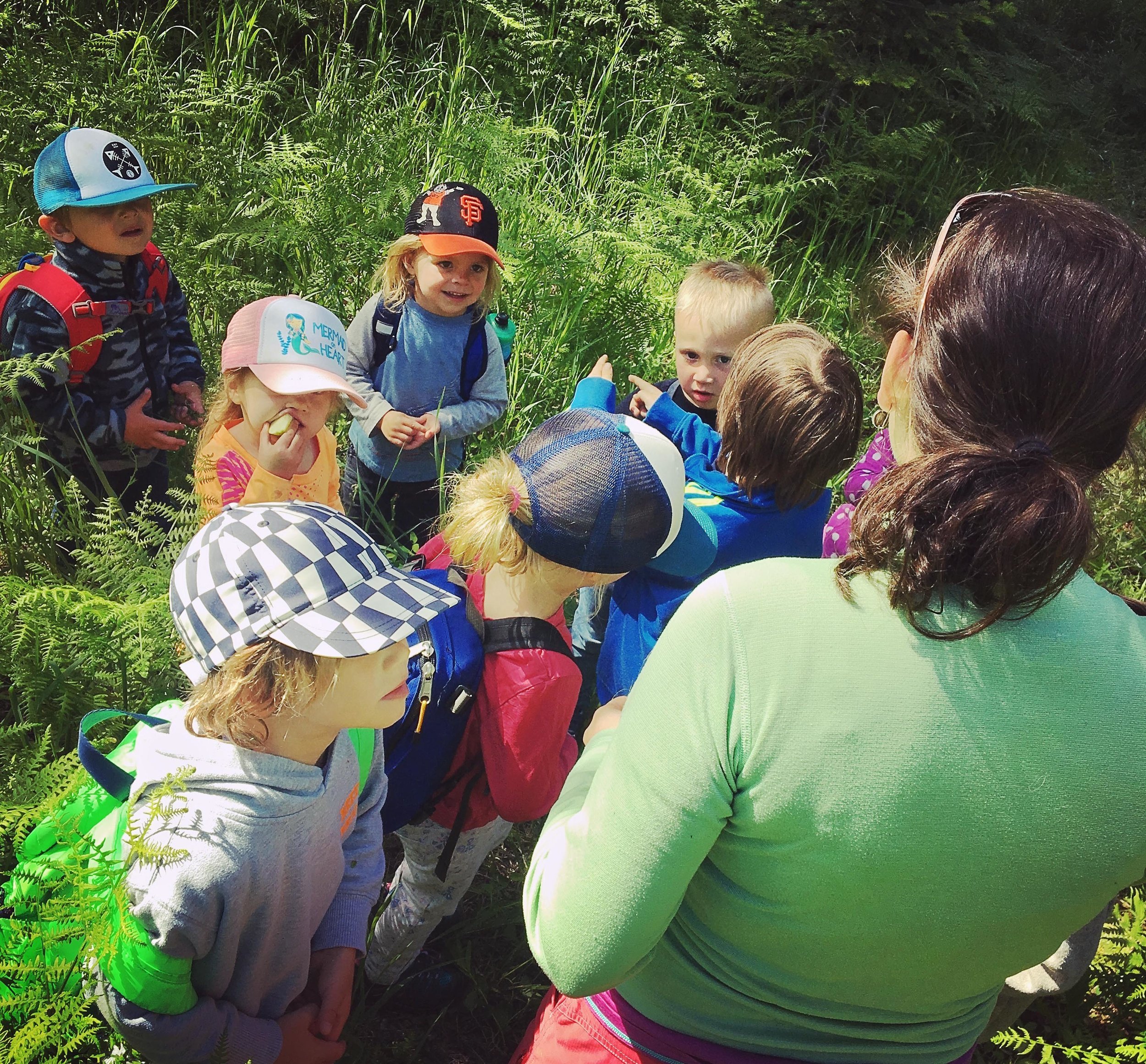
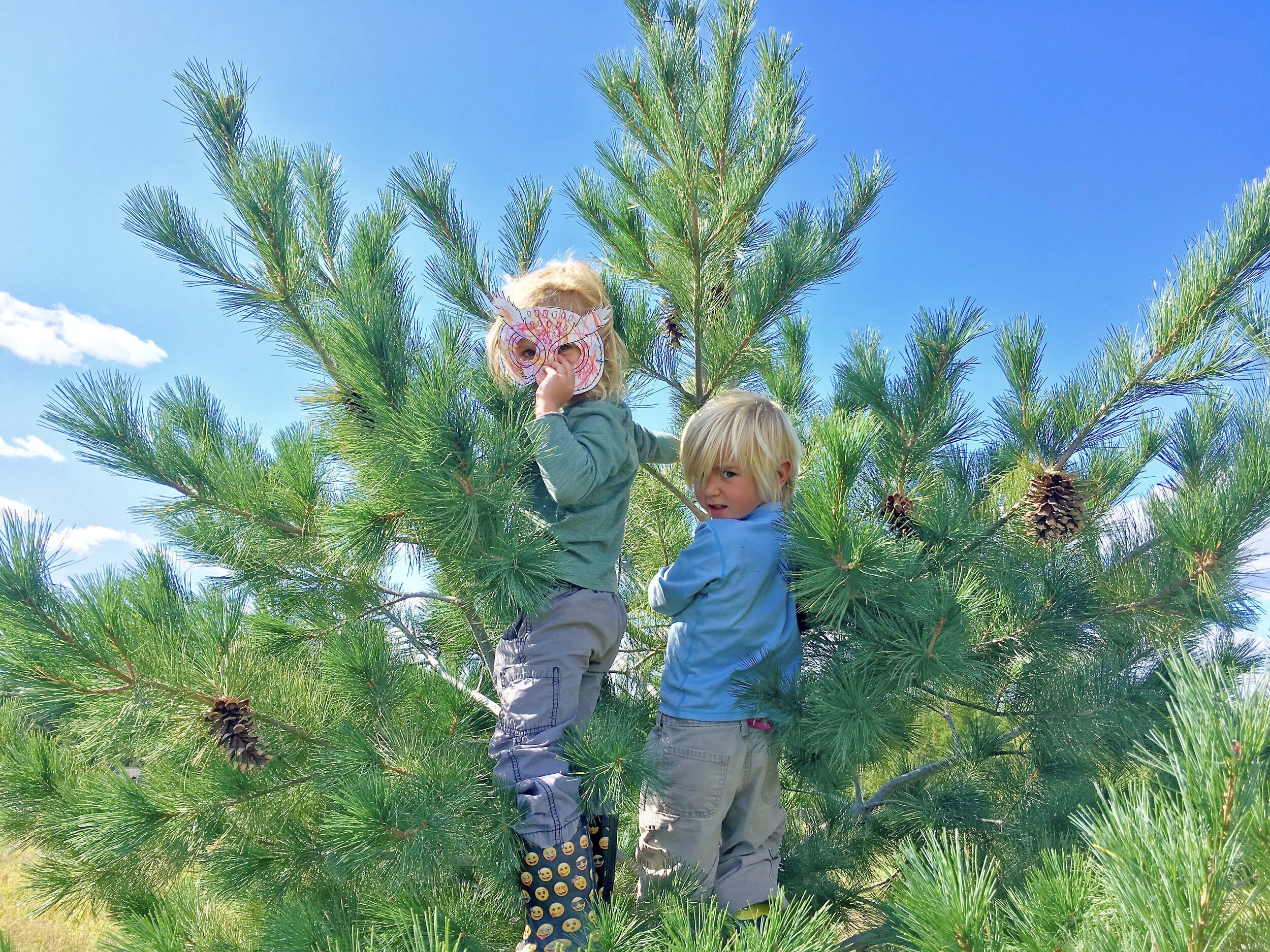
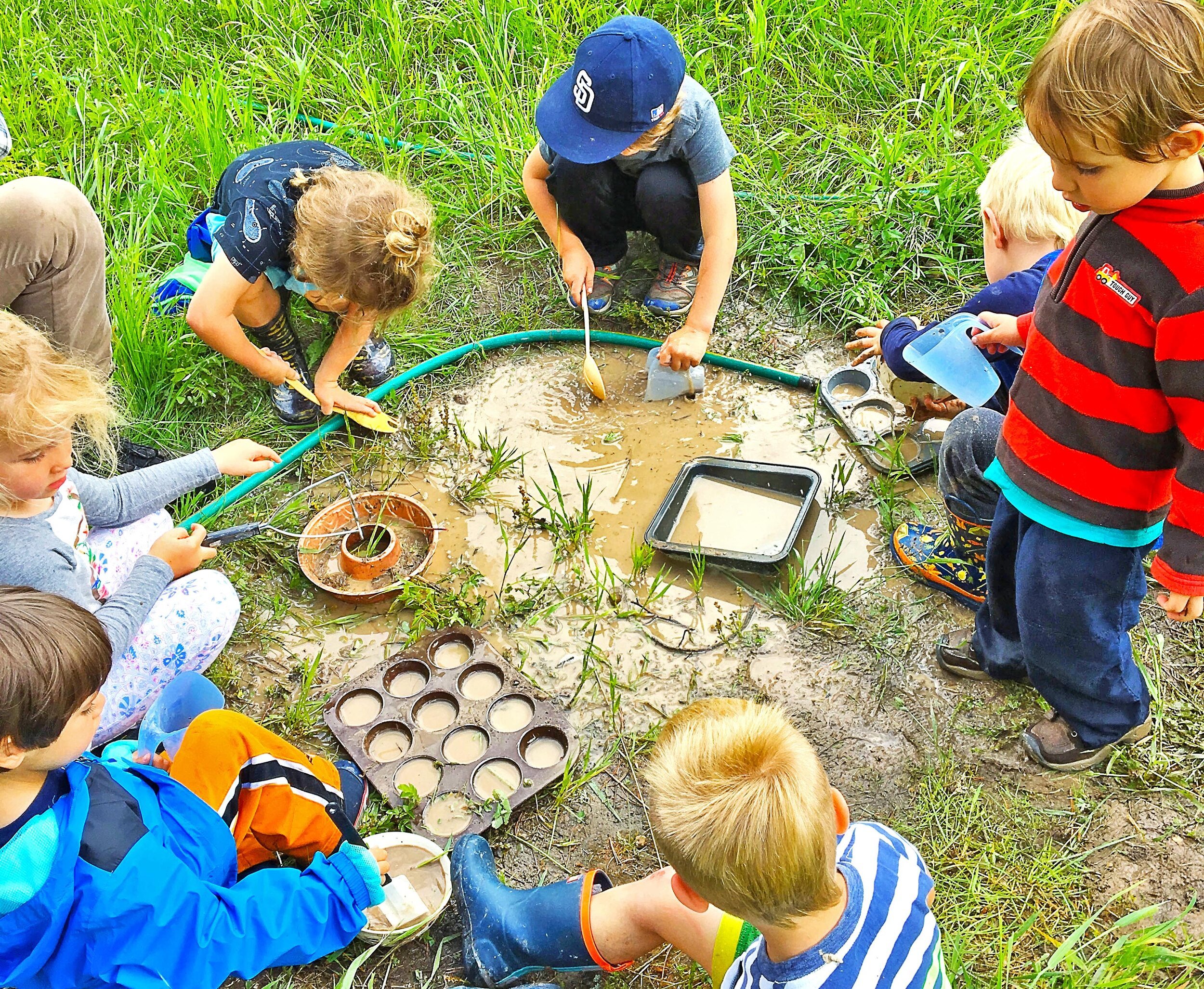
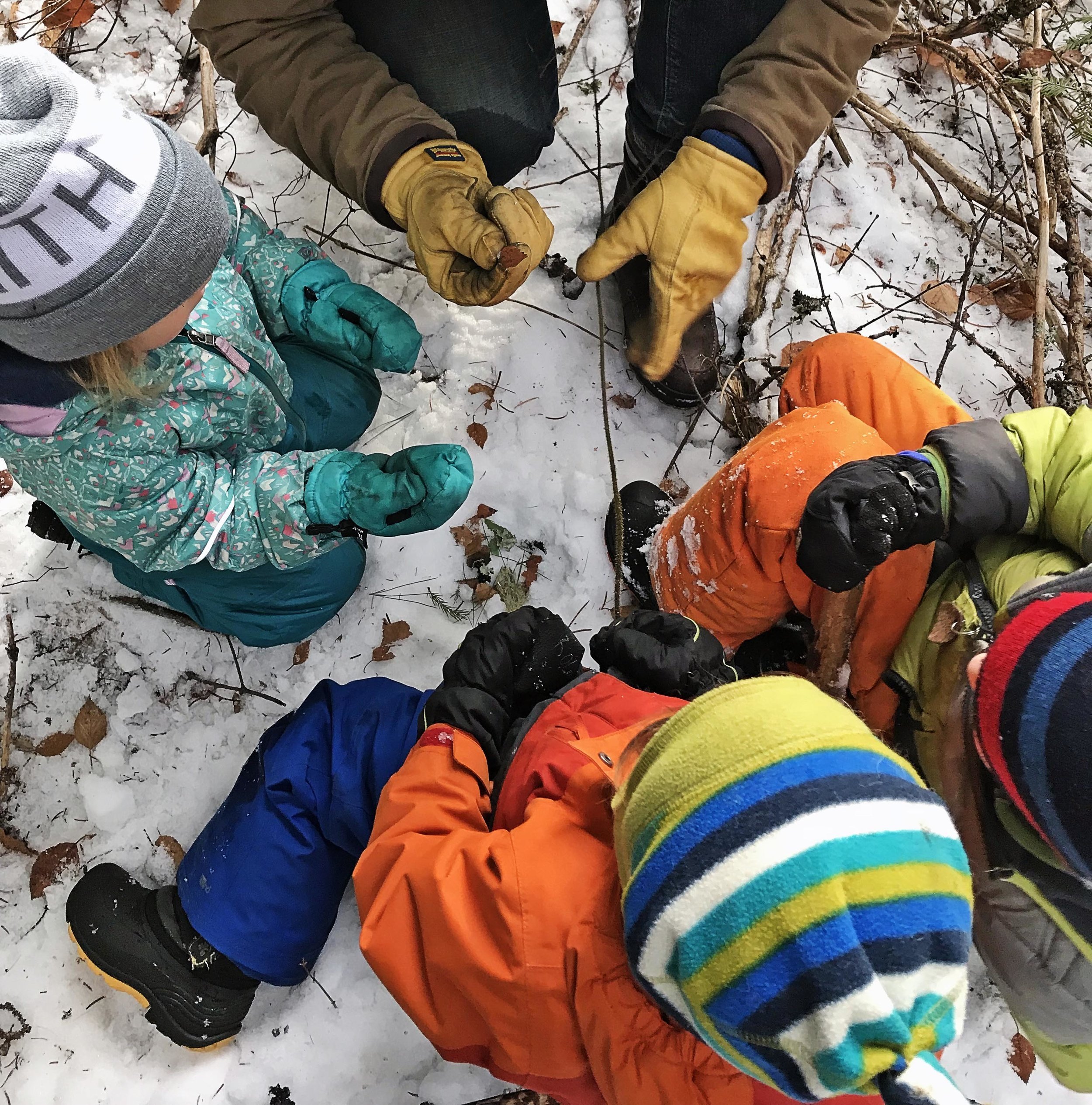
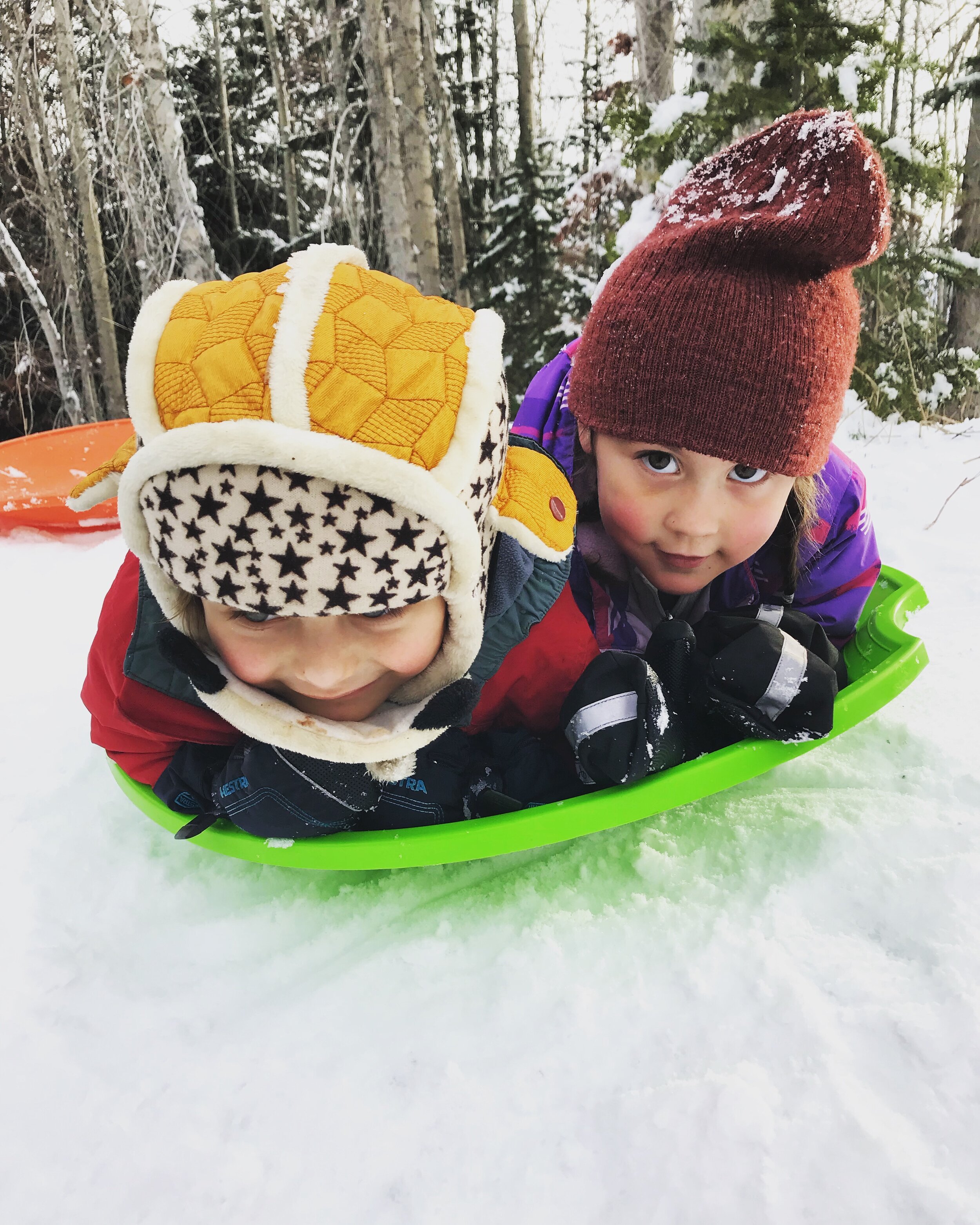
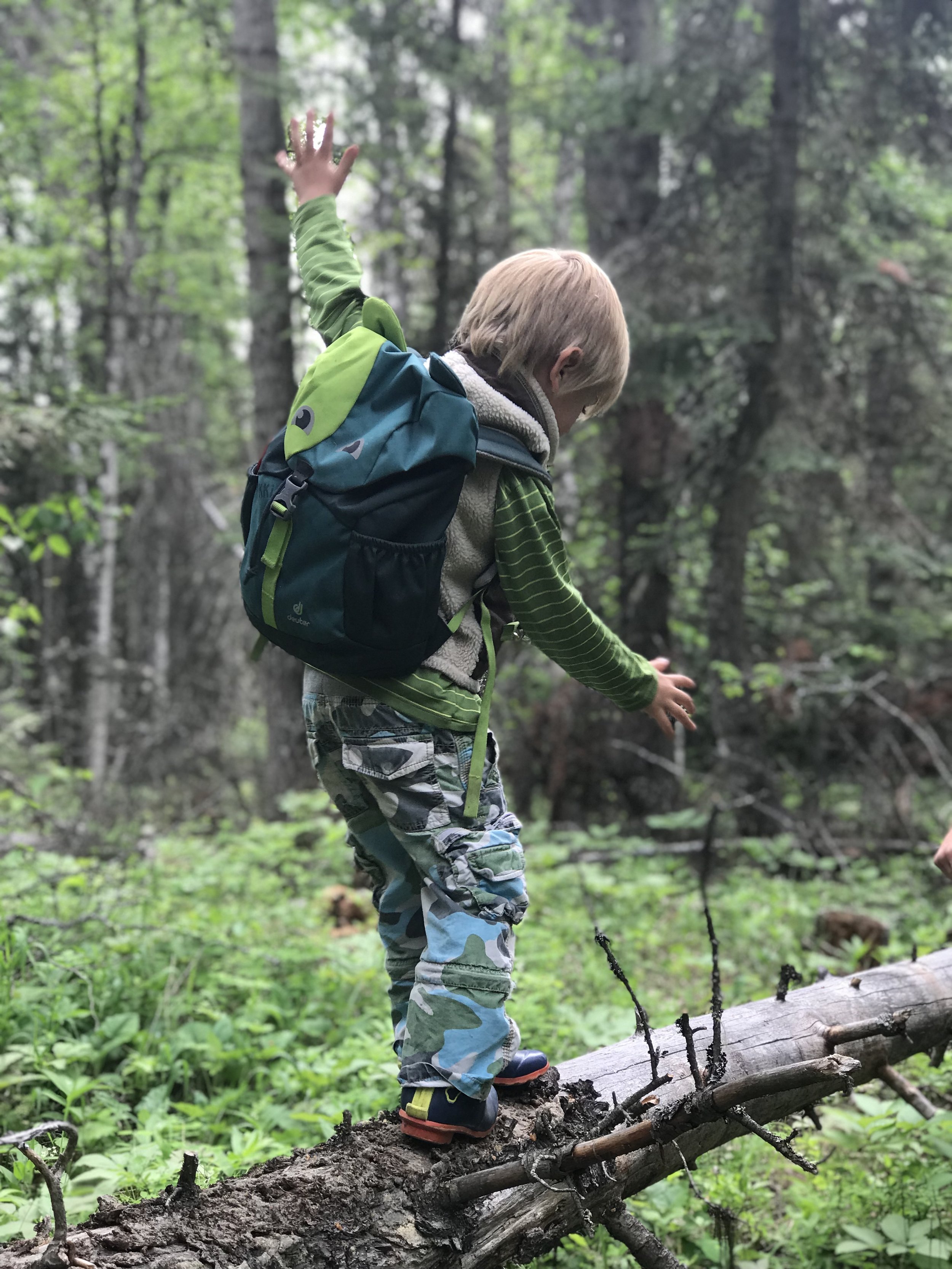
DAILY SCHEDULE
A Day at Foxtail
No two days are alike at Foxtail, really, but we do have a rhythm. Our movements fluctuate from day-to-day e.g. instead of hiking to the back forest early in the morning, we may amble to the pond or creek, bake mud cakes, sled, or climb in confidence! Snack and lunch demand a little less flexibility, as hungers and moods are close companions.
Welcome
8:45 AM - 9:05 AM
Backpacks away / gear check
Chores
Circle
Free Play
9:05 AM - 10:15 AM
CHORES
Each child, every day, enacts the routine of keeping responsibility for their things and accountability to their place: they place lunch and water into their lodgings, hang their backpack, water the raised beds, buddy-bundle the fire, and volunteer for special projects . These are small potatoes in our world, but they alert children to the needs of others while they themselves feel needed. These tasks establish an expectation to contribute before settling into their own endeavors.
CIRCLES
For 5-10 minutes, we try and foster social norms amongst adults and peers with morning greetings, wakeful thoughts and feelings, and mindful intentions (chiefly theirs) for the day. This is where we can practice deep listening and cement friendships forged during the energetic hours of the day. We’re slowly incorporating aspects of the Kindness Curriculum from the Center for Healthy Minds (University of Wisconsin-Madison), priming the pumps for a day of emotional attunement and loving-compassion.
THE WHEEL TURNS (FREE PLAY)
Less bee-line and more slither, we slow-tail it to the far woods and stop to take in curiosities, negotiate conflicts with each other and the inflexible stubbornness of branches and boulders in unscripted environments, stretch our patience through tired legs and empty bellies, and build conversations through observations (children use more advanced language in smaller groups and when engaged in compelling curiosities).
Snacks
Projects
Hikes
10:15 AM - 12:15 PM
SNACKS
We provide an organic, unprocessed snack every day, including the kids in its collection and dissemination to strengthen motor skills and patience; most importantly, these are key moments to build those pre-academic capacities (numeracy, causal reasoning, etc.) executive function capacities e.g. practicing inhibitory control when another student is selected to help with snack, or maintaining cognitive flexibility when indoor winter mores require a shift from outdoor modes of play.
PROJECTS
Special projects merit prolonged attention and continuity. This might be a casual visit to a familiar “sit spot” or personally-found “house”, a building project with dead logs & limbs, or a semester-long natural first aid kit with various salves, balms, etc. that feature the richness of regional biology and instill active vocabularies and feelings of place.
12:15 PM - 1:00 PM
Lunch
Reflection
LUNCH
Bringing their own lunch, children have open conversation and learn to share common space for the common weal, outdoors during non-winter months, rain or shine. We generally read 1-2 books and solicit thoughts and inquiries about these stories to build cognitive sequences and non-DI foundations of reading e.g. keen listening, furthered through phonemic awareness, is the groundwork of literacy development.
REFLECTION
During the latter part of lunch, we focus our attention on the elapsed day and practice internalizing reflections and “good practices” into long-term behavioral habits. This is also where we as educators can convey our appreciations and honest frustrations from the day, strengthening our bond with them as caregivers.
1:00 PM - 3:00 PM
Rest
Free Play
Project Extension
REST
A piece of time in the afternoon is reserved for rest, or down-time. The science behind sleep increasingly shows its salutary effects for children’s health. Even rest, keeping awake, aids in memory consolidation which contributes to long-term internalization of memory. For many kids, rest is a synonym for boredom, that ancient virtue that leads to resourcefulness & self-sufficiency. And in true Scandinavian fashion, we rest outside, hammocked in the warmer months and bundled up in mummy bags for the colder ones.
FREE PLAY
Our extended days afford the full-throated announcement of play and its myriad dividends: healthier physical development, opportunities for emotional regulation, the integration of self with the desires of others, greater plasticity in solving problems and finding solutions, and the embrace of movement and memory as bedfellows. Greater opportunities exist here for competence through tool usage and a growing engagement with the hands-on wisdom of their material environments.
PROJECT EXTENSION
A longer day ensures that special projects and children-led ambitions can be fleshed out, trialled and tinkered, with the watchful scaffolding of an adult to encourage children to ask more questions, to toggle between alternatives, to build trust with peers and mentors, and feel empowered through persistence
3:00 PM - 3:15 PM
Farewells
We may have 5-10 minutes remaining—avoiding the surprise of abrupt endings, a fair and clear warning helps us build closure in conversation, meander to the cabin to collect our belongings, and finish the day together with a final “hands-in.”


